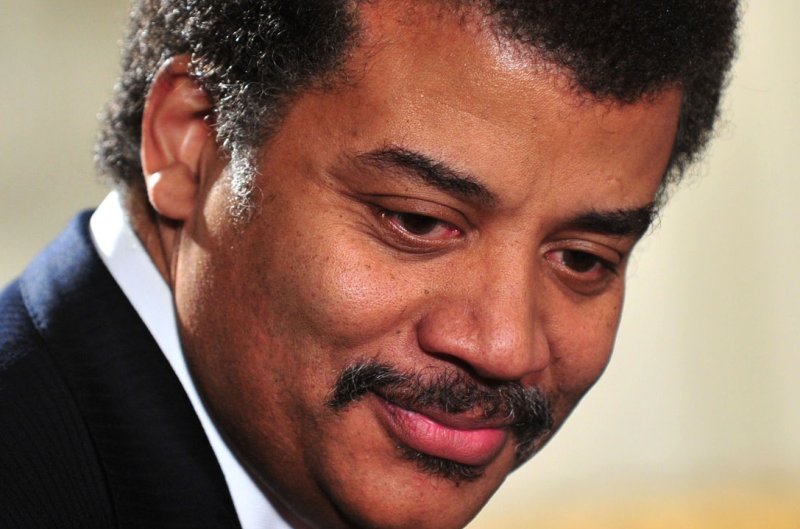1 of 2 | Science TV Personality Neil deGrasse Tyson, director of New York's Hayden Planetarium. UPI/Kevin Dietsch |
License Photo
WASHINGTON, June 3 (UPI) -- The share of the U.S. public that believes humans evolved without divine guidance has more than doubled since 1982, a new Gallup Poll finds.
But the percentage who believe that God created humans within the past 10,000 years has barely budged in more than 30 years, Gallup said in a report released Monday. While 47 percent of respondents took that view in 1982, 44 percent agreed with it in May, up from 40 percent in 2010 -- the all-time low.
In 1982, 38 percent of those surveyed said they believed humans evolved with divine guidance. That was down to 31 percent this year.
People who said they are weekly churchgoers were far more likely to be creationist, with 69 percent sharing that view. Only 1 percent said God had no part in the process, and 24 percent believe in evolution with divine guidance.
Those with college degrees were far more likely to be secularist. That group was the only one where a plurality, 41 percent, said God had no role in evolution. Creationism and evolution wtih divine guidance tied at 27 percent.
Younger people are more likely to have a secularist view of evolution than other groups, while people living in the South are more likely to be creationist.
The percentage who said they are familiar with the term "creationism" has dropped 10 percentage points in the past seven years from 86 percent to 76 percent. But 79 percent said they are familiar with the term "evolution," about the same as seven years ago.
The battle over evolution in the United States is decades old. One of the most recent flareups involves the Fox documentary series Cosmos, with Neil deGrasse Tyson, director of New York's Hayden Planetarium, laying out the evidence for evolution.
Gallup interviewed 1,028 adults by telephone between May 8 and May 11. The margin of error for the entire sample is 4 points.















